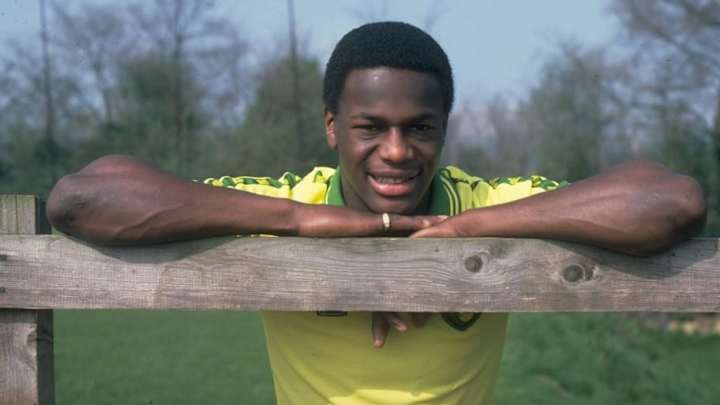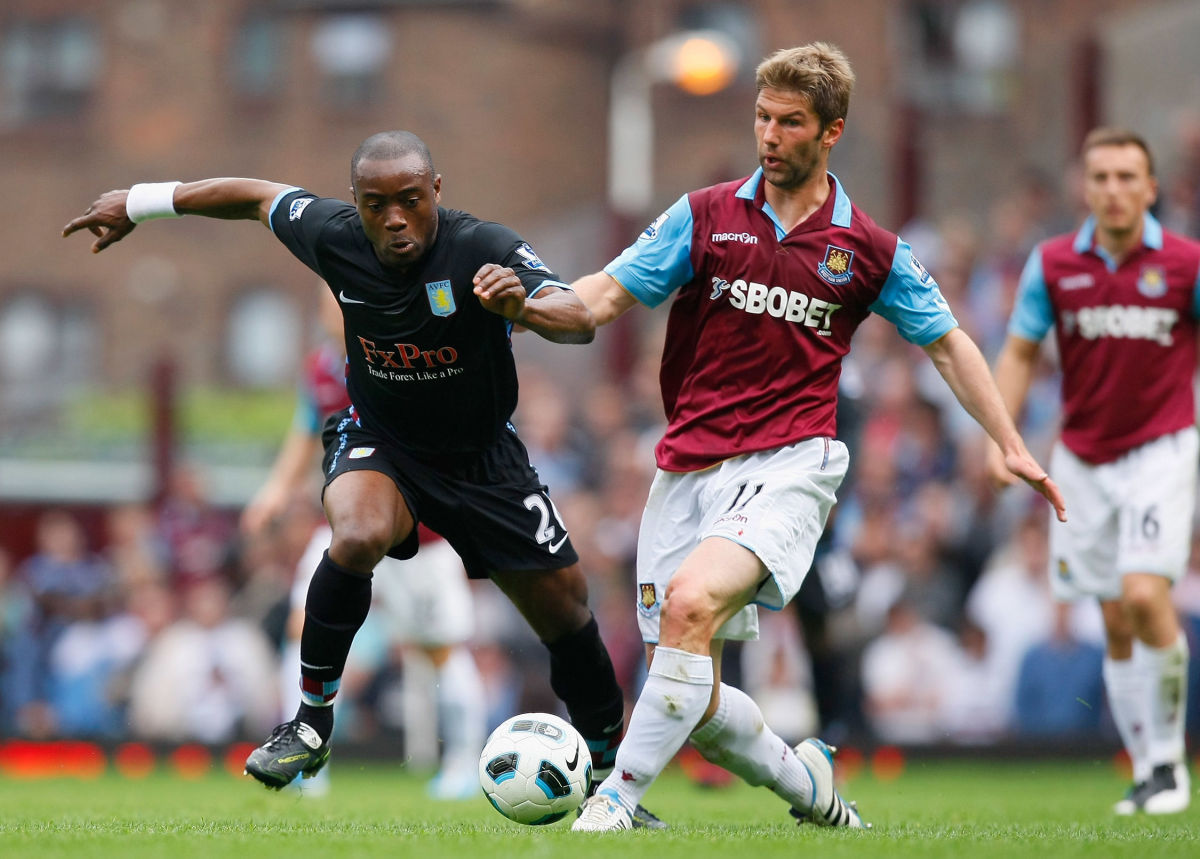Twenty Years After Losing Justin Fashanu, Is English Football Finally Ready to Accept Gay Players?

On the second of May this year, it was exactly twenty years since the tragic death of Justin Fashanu - England’s first openly gay professional footballer.
When he first shot to fame by scoring a spectacular goal for Norwich City against Liverpool in 1980, overt racism and homophobia were widespread in England, both within and outside the world of football. Monkey chanting and banana throwing were not uncommon at football grounds.
Justin Fashanu would have been 56 today. He will always be remembered. #ncfc
— Norwich City FC (@NorwichCityFC) February 19, 2017
Rest in peace, Justin. pic.twitter.com/GZlp5IVxcv
Yet even though Fashanu was both black and gay, this hostile environment did not seem to hold him back at first. He scored five goals in 11 England Under-21 appearances, and his performances for Norwich earned him a £1m transfer to Brian Clough’s Nottingham Forest in 1981.
Unfortunately, when Clough found out Fashanu was gay, the Forest manager suspended him.
This wasn’t the reason why Fashanu never fulfilled his early promise. A knee injury he sustained while playing for a different club later in the 1980s did far more damage to his career than Clough ever did.
Nevertheless, the treatment he received from the Forest manager can hardly have helped him. Neither can the malicious gossip about Fashanu’s sexual orientation, which was already widespread before he publicly came out as gay in 1990.
After coming out, Justin Fashanu received a conspicuous lack of support from within the world of football.
Eight years later, he hanged himself. He was just 37 years old.

It should also be mentioned that Fashanu faced serious criminal charges in the USA, including sexual assault, when he took his own life.
Then again, there’s no need to present him as a saint or a martyr. That’s not the point. For this writer – a straight white man from the Home Counties – it’s impossible even to imagine how isolated Fashanu must have felt as a gay black footballer in the 1980s, or even in the 'lad culture' era of the 1990s.
But that was then. This is now. English football has changed radically for the better since Justin Fashanu’s era...hasn’t it?
Footballer Robbie Rogers has come out and said he is gay. Wish him all the best and hope he continues to play free of any nonsense.
— Gary Lineker (@GaryLineker) February 15, 2013
Well, in terms of racism, the answer is yes. Excellent initiatives such as the organisation Kick It Out – as well as changing attitudes in society as a whole – have made English football grounds far more hospitable places for non-white supporters and players alike.
Homophobia in sport: Football Manager to feature gay players https://t.co/xYiBXrrHol
— BBC News (UK) (@BBCNews) October 29, 2017
But if we’re talking about homophobia, the picture is less rosy. To this day, Justin Fashanu is still the only top-level English footballer to have come out as gay. Yet the problem isn't confined to England - hardly any professional footballers have come out as gay anywhere in the world.
Former Germany midfielder Thomas Hitzlsperger, once of Aston Villa, and former USA international Robbie Rogers, who played for Leeds United, have also come out. However, Hitzlsperger had already retired when he revealed he was gay in 2014, while Rogers left England and returned to his native USA shortly after coming out in 2013.
There have also been laudable efforts – such as Stonewall's Rainbow Laces campaign and UEFA’s Equal Game initiative – to promote inclusive attitudes towards gay footballers.
#RainbowLaces for the boss today 🌈 pic.twitter.com/OYvQVysUlF
— Liverpool FC (@LFC) November 25, 2017
And yet...where are all the gay players in English league football?
According to the Office of National Statistics (quoted in the Guardian), one in 50 people in the UK say they’re homosexual. That’s more than a million people, and the total number of gay people could be considerably higher.
When a gay footballer comes out I'll support them. It doesn't matter who they score with off the pitch #ComeOut2Play https://t.co/8jGL157UEC pic.twitter.com/n23N8tRnB4
— Guillem Balague (@GuillemBalague) December 18, 2017
So it seems vanishingly unlikely that every single one of the thousands of league footballers in England is straight.
Why have none of them come out as gay? After all, overt homophobia is no longer socially acceptable in the UK.
Grab a bite and settle down with the brand new #AttitudeHeroes podcast featuring rugby hero @gareththomas14 https://t.co/BZCPU3Ir4z 🌈 pic.twitter.com/heBOo3p83V
— Attitude Magazine (@AttitudeMag) September 11, 2017
Even sections of society not noted for their liberal views have proved to be surprisingly open-minded. Former Wales rugby star Gareth Thomas was overwhelmed by the supportive response he received when he came out as gay in 2009.
@brianmoore666 Of course there are gay players but until one comes out how will we know how they'll be received. Same as rugby pre G
— Gary Lineker (@GaryLineker) March 30, 2013
Nevertheless, I think there are at least three reasons why a gay professional footballer might be reluctant to come out. First of all, they might fear that, once they’ve come out, everyone will focus on their sexual orientation and ignore their footballing attributes.
Secondly, they might be afraid of receiving abuse from opposing fans, like the homophobic chants about Brighton and Hove Albion by some Leicester fans last year.
Thirdly, we now have a serious problem which even Justin Fashanu never had to worry about – abuse on social media, which seems impossible to prevent and extremely difficult to punish.
Life as a gay footballer: Gainsborough Trinity star Liam Davis opens his heart http://t.co/pGWaY8WqGV
— Liam Davis (@LiamDavis07) January 11, 2014
Yet if England’s only openly gay professional footballer – non-league Cleethorpes Town’s Liam Davis – is anything to go by, gay players have little to fear from coming out. He doesn't deny that he is sometimes a target for abuse – but usually because of his short stature.
Talking about his homosexuality, and quoted in the Telegraph in December 2017, Davis said:
“I can honestly say I’ve never had any serious abuse. I get way more gyp for my height.”
A little throwback to cheer me up through this wet called off season of non football.. back in the summer gracing Wembley with the lads 😍❤ pic.twitter.com/1wflPJEqdL
— Liam Davis (@LiamDavis07) March 12, 2018
Davis’s advice to other footballers who were thinking about coming out as gay was simple:
“If anyone did ever ask my advice, I’d say: do it, don’t worry.”
If only Justin Fashanu could have said the same about his experience of coming out. Maybe he’d still be alive today.
